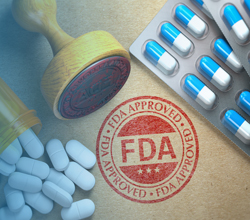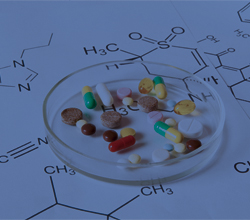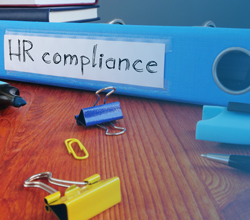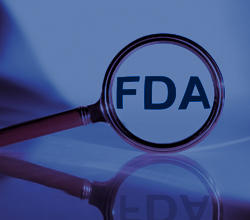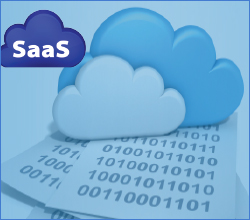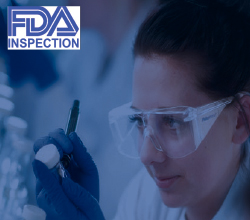
Handling OOS Test Results and Completing Robust Investigations
 Danielle DeLucy
Danielle DeLucy
 90 Min
90 Min
Product Id: 704351
This webinar will review the regulatory requirements for investigating an OOS Investigation. The responsibilities of the analyst, the supervisor and QA will be discussed. A detailed flow chart will be used to help the attendees clearly understand the steps and the order in which they are to be performed. The structure of an Investigation report which properly documents the investigation will be discussed.

Best Practices for an Effective Cleaning Validation Program
 Joy McElroy
Joy McElroy
 60 Min
60 Min
Product Id: 704329
This training program will be beneficial to personnel directly involved in the development of cleaning procedures, cleaning validation programs and plans. Additionally, those responsible for cleaning validation protocols and execution activities, including validation and laboratory personnel, as well as, beginning or seasoned operational personnel who will eventually participate in such efforts, will find this course particularly useful.

Good Laboratory Practices (GLPs) - Comparing and Contrasting with Good Manufacturing Practices (GMPs)
 Joy McElroy
Joy McElroy
 120 Min
120 Min
Product Id: 704086
The objective of this webinar is to compare and contrast between Good Laboratory Practices and Good Manufacturing practices.

Human Error Reduction in GMP Manufacturing
 Ginette M Collazo
Ginette M Collazo
 90 Min
90 Min
Product Id: 704107
This training program will offer attendees an understanding of human errors in GMP related environments, factors and causes, and control measures to be put in place to reduce the same.

Good Documentation Guideline (Chapter <1029> USP)
 Dr. Afsaneh Motamed Khorasani
Dr. Afsaneh Motamed Khorasani
 60 Min
60 Min
Product Id: 705130
This webinar will familiarize participants with USP Chapter <1029> on good documentation guidelines. This session will wrap up the general concept and will provide information as to what needs to be documented in certain records.

EFFECTIVE INVESTIGATIONS AND CORRECTIVE ACTIONS (CAPA) Establishing and resolving the root causes of deviations, problems and failures
 Danielle DeLucy
Danielle DeLucy
 90 Min
90 Min
Product Id: 701025
This course teaches tools and techniques that can be employed to get to the root causes of unexpected quality events, and help resolve them in a lasting, GMP compliant manner.
The course examines actual situations, guiding participants in effective investigation resolution and determining solutions to effect proper corrective action.

Steam Sterilization Microbiology and Autoclave Performance Qualification
 Danielle DeLucy
Danielle DeLucy
 60 Min
60 Min
Product Id: 705027
In this webinar, the steam sterilization mechanism will be described as it relates to bacterial cells and endospores. The process and key terminology are defined. Understanding these fundamentals is critical to develop a successful autoclave sterilization process.

Implementation and Management of GMP Data Integrity
 Danielle DeLucy
Danielle DeLucy
 90 Min
90 Min
Product Id: 705029
Attend this webinar to learn the regulatory expectations for data integrity during CGMP inspections. The course will review examples of data integrity pitfalls, part 11 compliance data integrity issues, FDA citations related to data integrity. It will teach you how to improve data integrity in a laboratory environment.

Introduction to Root Cause Investigation for CAPA
 Vanessa Lopez
Vanessa Lopez
 60 Min
60 Min
Product Id: 704409
This CAPA training program will provide an understanding of FDA and ISO requirements, steps in CAPA process and the challenges associated to root cause analysis. Attendees will learn the tools and quality data sources to use during root cause analysis investigation.

Supplier and Service Provider Controls: FDA Expectations
 Vanessa Lopez
Vanessa Lopez
 120 Min
120 Min
Product Id: 704844
This training program will provide regulatory requirements (US) of 21 CFR Section 820.50 (purchasing control) for the medical device industry and illustrate the same with examples. It will furnish details on what purchasing/supplier control management systems should address.

Implementing a Bullet Proof Quality System for FDA Audit Success
 Meena Chettiar
Meena Chettiar
 60 Min
60 Min
Product Id: 705400
This webinar will provide an overview of the FDA expectations in medical device industries for setting up a quality system for FDA audit readiness. It will also provide an understanding of the quality system inspection techniques (QSIT) requirements for documents controls, production and process controls, packaging and labeling controls and more.

Complaint Handling Requirements (US); Interrelationship with CAPA, Change Control, Adverse Event Reporting, Recalls and Life Cycle Process Activities
 Vanessa Lopez
Vanessa Lopez
 90 Min
90 Min
Product Id: 704758
This training program will provide the regulatory requirements (US) for complaint handling in the medical device and pharmaceutical industries. The course will touch on complaint sources, and details will be furnished on the interrelationships regarding complaint handling/change control/adverse event reporting/and recalls. The course will also include timeline requirements associated to adverse event reporting, which reporting formats to use, when to recall and types of recalls.

Sterilization of Pharmaceutical Products and Medical Devices
 Carl Patterson
Carl Patterson
 90 Min
90 Min
Product Id: 705310
This webinar will discuss in detail the methods of sterilization to be used on medical devices and pharmaceutical products including advantages and disadvantages of each method. Also attendees will understand the regulations pertaining to sterilization of products that will help to decide with method to use for their product. Validation of each sterilization method will be discussed and how best to prove to a regulatory body the products being treated are considered sterile.

Making Data Driven Decisions using Statistical Hypothesis Testing
 Steven Wachs
Steven Wachs
 60 Min
60 Min
Product Id: 704211
This training program will cover statistical hypothesis testing concepts including: null and alternate hypotheses, test statistics, p-values, confidence intervals, confidence levels, power, power curves, and sample sizes. Several types of hypothesis tests will be covered such as 1 and 2-sample means tests, tests of variances, and tests of proportions. Equivalence tests will also be discussed. The importance of selecting appropriate sample sizes will be stressed.

Process Capability Analysis, and What to Do if it's Not a Bell Curve
 William Levinson
William Levinson
 60 Min
60 Min
Product Id: 705157
This process capability analysis webinar will discuss the relationship between variation and accuracy, and process yield, short term versus long term variation, non-normal distributions and how to perform a process capability study.

3-Hr Virtual Training: Introduction to Design of Experiments
 Steven Wachs
Steven Wachs
 3 hrs
3 hrs
Product Id: 704847
In this training program, attendees will understand when and why to apply DOE (design of experiments). They will also learn to identify and interpret significant factor effects and 2-factor interactions and develop predictive models to explain and optimize process/product behavior. Applying efficient fractional factorial designs in screening experiments will also be discussed.

Performing an Effective, Robust and Compliant Sterility Failure Investigation: How to Avoid Common Mistakes
 Charity Ogunsanya
Charity Ogunsanya
 90 Min
90 Min
Product Id: 703885
This training program will highlight mistakes often made when corrective and preventative actions are not clearly identified and applied during a manufactured product sterility test failure investigation because an ineffective investigational procedure and tool was used to conduct a sterility test failure investigation. The webinar will also illustrate how avoiding such common mistakes will ensure that these types of products meet the sterility requirements USP <71> and other regulatory guidelines applicable to finished products, bulk drug substance, raw materials or excipients.

4-Hr Virtual Training: How to Respond to an FDA Investigation
 Joy McElroy
Joy McElroy
 4 hrs
4 hrs
Product Id: 704549
This FDA investigation training program will deconstruct best practices for handling unannounced FDA visits, responding to a 483 or a warning letter, and the effect of an FDA investigation. The program will also discuss basic concepts that should be employed by everyone regulated by the FDA and define processes for preparing for FDA audits.

Fishbone Diagramming
 Michael Abitz
Michael Abitz
 90 Min
90 Min
Product Id: 705338
This webinar will teach you how to identify potential process problems and avoid process interactions through effective process mapping. It will cover steps to create a fishbone diagram including its purpose, advantages and how to present it.

CDISC Mapping 5: ADAM Models - ADSL, BDS and ADAE
 Sunil Gupta
Sunil Gupta
 90 Min
90 Min
Product Id: 704316
This training session is intended for anyone directly or indirectly responsible for the creation, content or validation of CDISC data sets, tables, and data lists used to support research, drug or medical device efficacy and safety in a regulatory submission. The program will provide effective and practical solutions to address real-world issues.

